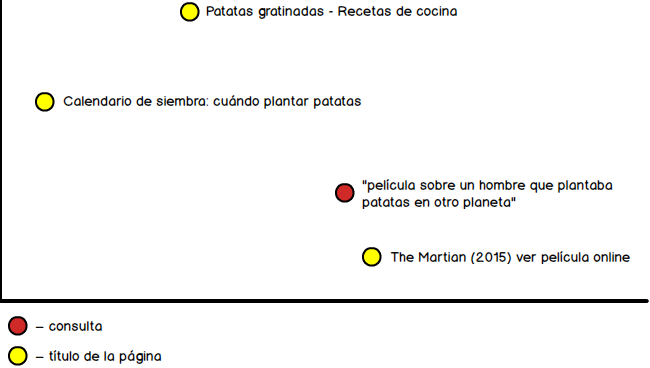Written by Anastasia Kurmakaeva

Despite Google’s monopoly in the vast majority of countries around the world, Yandex’s market share in Russia continues to predominate over that of the Californian giantThe scenario does not seem likely to change in the coming years, given its unstoppable expansion and technological development.
? According to SEJournal, in 2019, 52% of Russian-speaking users still prefer Yandex, compared to 46% of Internet users who prefer Google.
In the same interview given to SEJournal by the Yandex team, we also found out that the penetration of mobile searches and voice searches in the Russian search engine is increasing, being about 56% and 20% of the total, respectively.
Palekh
Since its introduction in November 2016 with Palekh, Yandex has been increasingly refining and fine-tuning its neural network-based algorithm to respond to more complex search intentions and queries with the help of machine learning, with a particular emphasis on long tail ones. In its first release it had more limited capabilities, as it was only able to analyze the titles of web pages, but not the content in its entirety, as well as being considerably slower than its successor (which we will talk about shortly), processing about 40% of the requests made to the search engine out of the 280 million per day.
The“semantic vectors” technology used by Palekh is based on distributional semantics. As explained in their blog (in Russian), words from billions of queries are converted into numbers, or rather groups of 300 numbers each. These are distributed across a 300-dimensional space, where each document has its own vector. If the numbers that correspond to a query are close to the numbers that correspond to a document in that space, the result is considered relevant. The closer they are to each other, the more relevant the page returned by the search engine will be.

Within the long tail keywords Yandex distinguishes several categories, ranging from more to less specific. Not always the most relevant queries and results will have words in common, which certainly makes the search engine’s job more difficult. For example:
- Queries where a person does not remember the name of the movie they have recently seen, but a very specific scene from it has stuck in their mind: “movie about a man who planted potatoes on another planet” > Mars (The Martian).
- People, often children, who still don’t quite understand how to address a search engine and talk to it as if it were an entity in itself: “yandex, please recommend me interesting games about fairies for the tablet.” > Your search intent could probably be summed up as a page that recommends games with a fantastic component for iOS or Android platforms.
And this is where the need arises to teach the algorithm to be able to respond to more natural and “human” user searches.
Yandex provides the following graphical representation of how the Palekh algorithm works, in two dimensions for mortals:
Korolyov
Almost a year later, in August 2017, the next major update to Yandex’s intelligent algorithm – Korolyov – saw the light of day.
Korolyov is based on Palekh, but is even more powerful. While the previous update only looked at the title tag to find matches between the search term entered by a user and the results, Korolyov reads and analyzes the entire content of the page, to return results much closer to the search intent. Not only that, but its real-time document processing capacity is increased a thousand-fold. Moreover, as it is a system based on artificial intelligence, its neural network learns more and more, thanks to a thorough analysis of the user’s behavior when faced with the results offered. It compares the current query with others that have led a user to the same content, or looks at how long someone has spent on a page after accessing it via query X, among other relevant indicators.
On the other hand, the calculation of semantic vectors is performed at the time of content indexing, allowing the search engine to establish connections quickly and efficiently. This saves considerable resources, since it only needs to process a particular content once in order to compare the vector of the query entered with the vectors of the pages already known.
The same year of Korolyov’s launch also saw the launch of Yandex’s AI assistant Alice, a fact that has boosted the use of voice searches in the search engine.
Andromeda

New functionalities have been added , such as quick answers, which offer direct and clear results to simple queries. For example:
- What day falls on a particular holiday.
- What a soccer match is being held today.
- Coffee shops near me.
Another new feature is Yandex.Experts, where users can ask questions on a wide variety of topics to real experts if they do not find an answer to their query in the search results.
Conclusions
What conclusions can we draw from the direction Yandex is taking in recent years and how does it affect SEO? In short, we do not observe major differences between Google and Yandex to that effect.
- The generation of relevant and quality content continues to be a fundamental pillar. When creating content on our website, we must orient it to the user, and not to the search engine. Correct and coherent writing that provides valuable information is the key.
- Websites must offer the best user experience, and work in a fast and agile way to adapt to mobile devices, as we have seen in this article, since browsing from smartphones is also predominant among Russian-speaking Internet users.
- Voice searches are going to become increasingly important.
What new developments in the Yandex algorithm do you think are in store for us this year?




